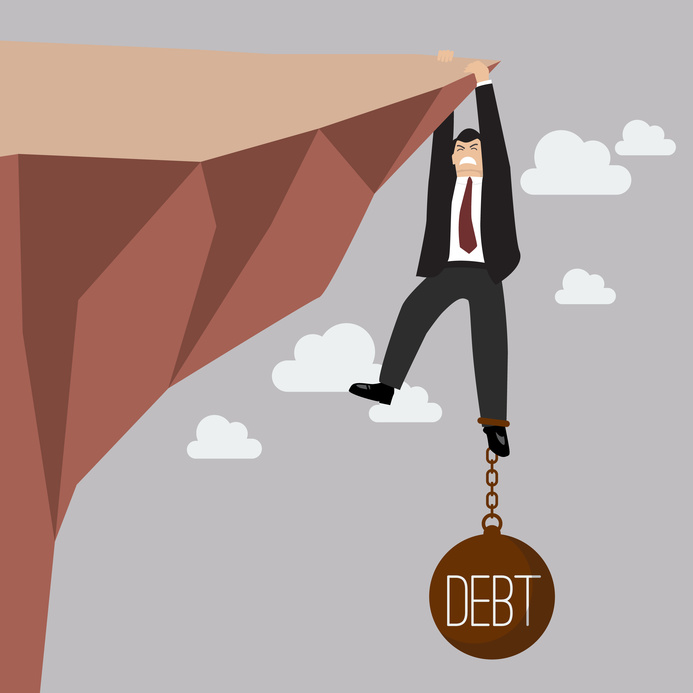Bankruptcy is often referred to as the option of last resort for people. When you are in financial trouble you are desperate to find a way out. Many people try to avoid being declared bankrupt and some opt for another solution even though bankruptcy may well be the best solution for them.
It’s hard to tell just how much the perceived stigma of bankruptcy affects their decision but it does appear that younger people are less concerned than the older generation about the stigma of bankruptcy. There are many illustrious, famous and indeed infamous people who were declared bankrupt, sometimes more than once, and it makes you wonder if the stigma historically linked to that status is now diminishing. Some of those people were able to rise phoenix-like from the ashes of their personal finances to achieve great things while others had achieved their fame or infamy before they were adjudged bankrupt. Making a fresh start and attaining success after suffering the stigma of bankruptcy must surely rank as an admirable achievement.

Historically, no occupation was spared and no status or perceived status in society afforded escape from the ignominy of the label ‘bankrupt’. What is remarkable is the level of achievement to which many bankrupts aspired and their ultimate accomplishments. A key factor is the country where the bankruptcy occurred. In the USA emerging from bankruptcy is often perceived almost like a badge of honour and for many who were able to overcome that burden and go on to achieve success, it was as if their status in society was doubly enhanced in the land of the American dream.
Businessmen who were made bankrupt included tyre manufacturer Charles Goodyear as well as automobile manufacturers Henry Ford, John DeLorean and William C. Durant, founder of General Motors. Henry John Heinz, condiment manufacturer par excellence and founder of H. J. Heinz the global food conglomerate was also made bankrupt.
Famous women were also members of the bankruptcy club. Singers Chaka Kahn, Cyndi Lauper, Natalie Cole, Toni Braxton and Tammy Wynette as well as actresses Barbara Bel Geddes, Debbie Reynolds and Kim Basinger all wore the bankruptcy badge of honour at one stage or another. In the singing and acting professions men dominated the bankruptcy league by sheer weight of numbers. Singers Al Jolson, Andy Gibb, David Van Day, Jerry Lee Lewis, Marvin Gaye, MC Hammer, Meat Loaf, Mick Fleetwood, Tom Petty and Willie Nelson were made bankrupt as were actors Mickey Rooney, Gary Coleman, Don Johnson, Buster Keaton, Burt Reynolds and Bill Roache, otherwise known as Ken in Coronation Street.
Famous sportsmen who also suffered from this ultimate financial stigma include Bjorn Borg, Chris Eubank, George Best, Mike Tyson, Keith Gillespie and of course Eddie ‘The Eagle’ Edwards, although some might say that Eddie’s claim to fame or infamy was a little spurious.
The arts were not immune to bankruptcy either. If someone were to ask you what Mark Twain, Oscar Wilde, Daniel Defoe, Miguel de Cervantes, Frank Baum, Handel, Isaac Hayes, Rembrandt, James Abbot McNeil Whistler, Lionel Bart and Wolfgang Amadeus Mozart had in common other than being authors, composers, artists and painters, would you have guessed that they also were all once bankrupt? Historian David Irving could be included in that category also.
Even royalty and presidents did not escape the scourge. Philip II King of Spain, Edward II a fourteenth century King of England and American Presidents Ulysses S. Grant and Abraham Lincoln all suffered from financial difficulties resulting in their bankruptcies.
The entertainment industry furnishes us with the names of a few more famous bankrupts: Henry Saltzman, film producer, Larry King, talk show host, Jim Davison, comedian, Michael Barrymore, TV presenter, P.T.Barnum the great American circus owner were all great entertainers in their own right and perhaps the same accolade might be bestowed by some on Anna-Nicole Smith famous for being a Playboy centerfold, at least for a month.
Perhaps the most poignant member of the big ‘B’ club was Henry Dunant founder of the Red Cross, whose philanthropic good works did not spare him from the ultimate financial ignominy.
In Ireland the recession has taken its toll. The former chairman of Anglo Irish Bank, Sean Fitzpatrick has been made bankrupt in Ireland while former chief executive David Drumm is currently in the bankruptcy courts in the USA as is developer Sean Dunne. Sean Quinn who was reported as being Ireland’s richest person some years ago and a superlative entrepreneur to boot has been declared bankrupt in Ireland, shortly after his voluntary bankruptcy in Belfast was overturned by the courts. A virtual plethora of former builders and developers in Ireland have taken the bankruptcy route both in Ireland and in the UK, where the regime is much more benign. Ivan Yates who was a former Irish government minister and founder of Celtic Bookmakers, a large chain of betting shops, petitioned for his own bankruptcy in the UK and has now been discharged from bankruptcy there and is back living and working in Ireland.
While bankruptcy is one of those conditions that you would not wish on your worst enemy, it is nowadays a much less severe and constricting process than it once was, particularly in the USA and in the UK. The new bankruptcy laws enacted in Ireland in the last few years are significantly more severe on citizens than those in the USA and in the UK. Consequently they are unlikely to really provide a fresh start to entrepreneurs but rather set out to punish financial transgressors, albeit perhaps a little less harshly than the historic archaic and draconian Irish legislation. It seems that the stigma of bankruptcy will linger on in the Emerald Isle for some time yet.